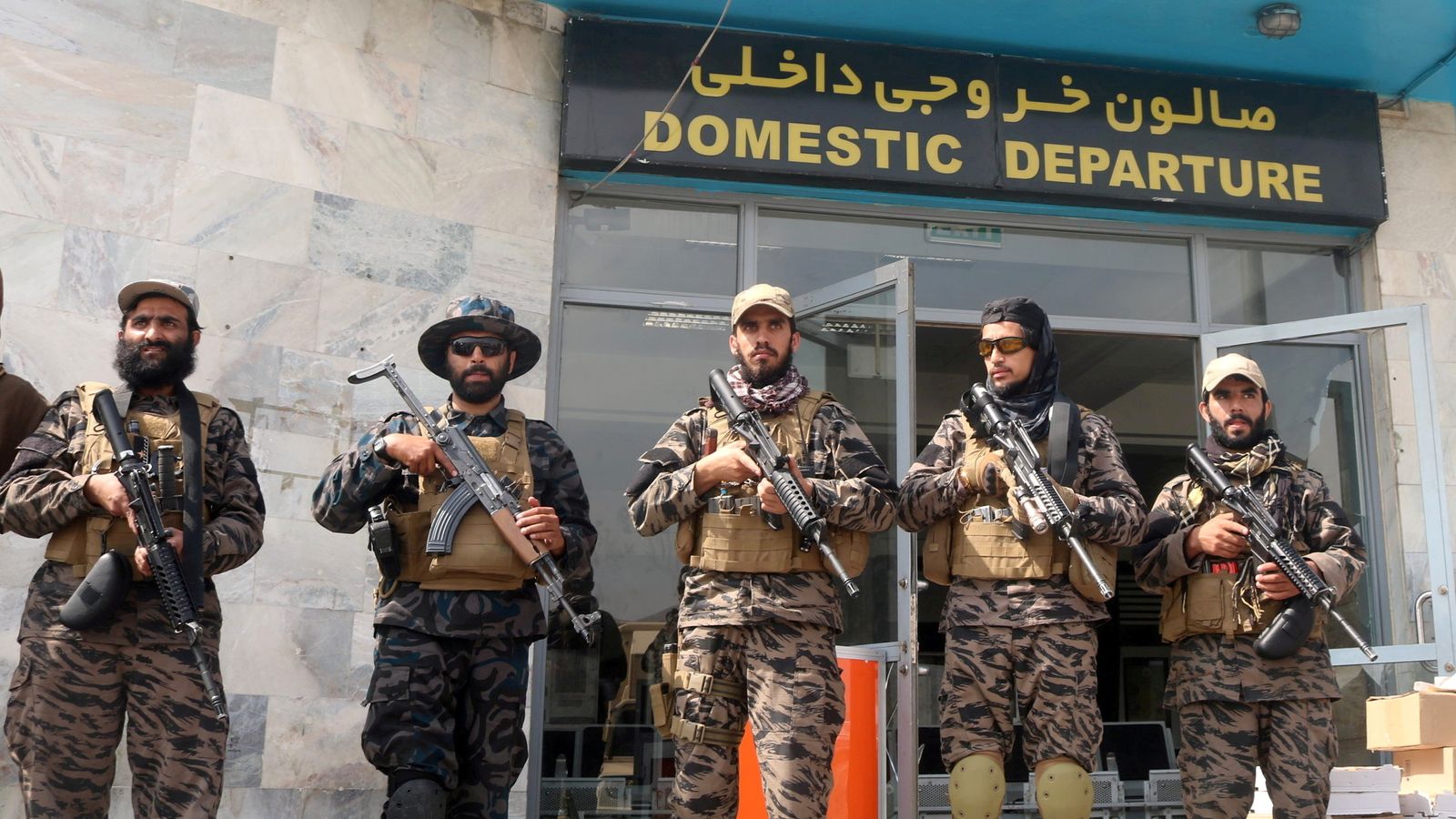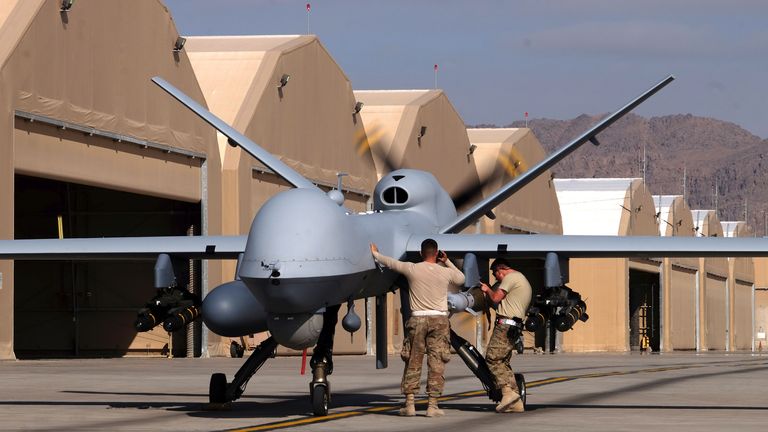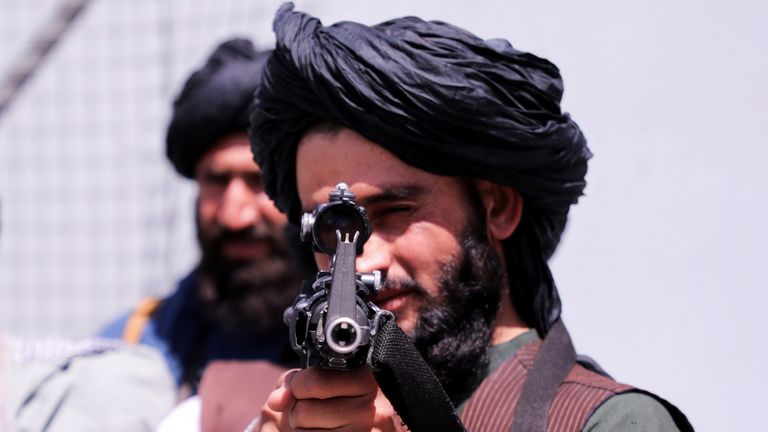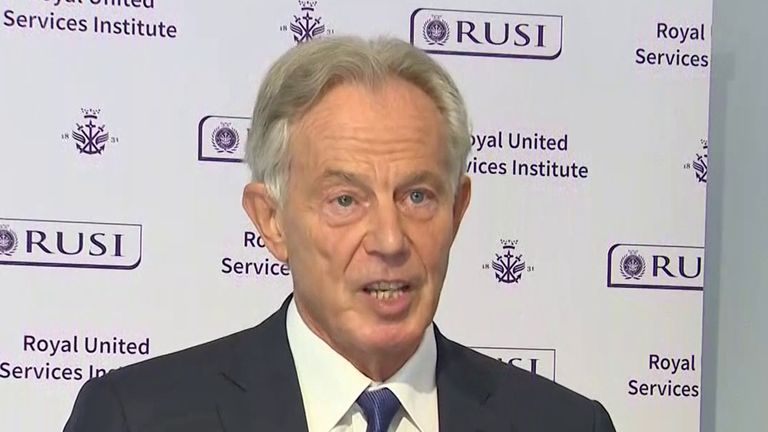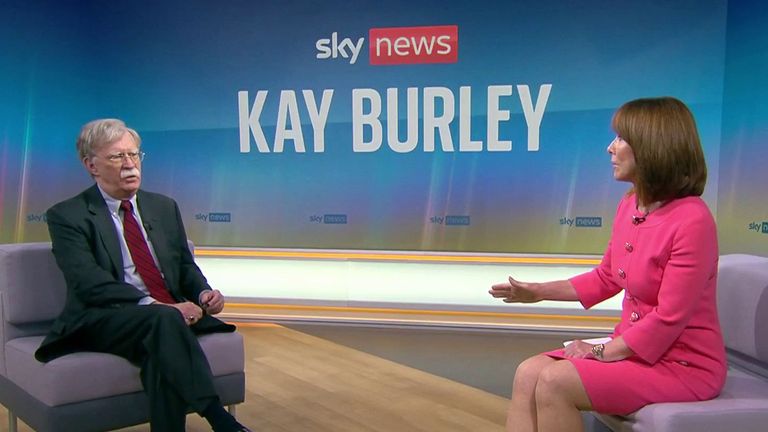The head of MI5 has said terrorist attacks on UK soil will likely happen on his watch and that his officers and the police have foiled six “late-stage” plots during the pandemic.
Ken McCallum revealed the number of terrorist plots the Security Service has to deal with has grown since the September 11 attacks on the United States 20 years ago, but they are generally smaller and less sophisticated.
And he said that his officers are planning for the possibility of a greater security risk to the UK flowing from Afghanistan following the exit of all US, British and other allied forces.
He warned the Taliban takeover in Afghanistan will have “heartened and emboldened” some extremists.
The comments came in a rare interview on BBC Radio 4’s Today programme ahead of the 20th anniversary of the 9/11 atrocities in New York, Washington and Pennsylvania.
Recalling that day, McCallum said he and some fellow officers had turned a television on in the corner of a room they were in after the first plane hit the World Trade Centre. He had been based in Northern Ireland at the time, running agents.
“As the second plane struck, a colleague quietly said ‘Osama Bin Laden’,” the security chief said, referring to the then leader of the terrorist group al Qaeda. Bin Laden directed the attack from Afghanistan, when the previous Taliban regime had been in power.
McCallum said a second colleague then said: “‘I guess we all know what we’re doing for the next 10 years of our lives’. And so it proved.”
The 9/11 carnage triggered the US-led invasion of Afghanistan and what then President George Bush dubbed the “war on terror”.
The director general of MI5 appeared resistant to that term, though, saying it gave undue credit to extremists as soldiers when they should be treated as criminals.
He said efforts by his agency, working with MI6, GCHQ, the police and partner nations, had reduced the ability of terrorists to launch so-called “spectacular” attacks – like 9/11 or the Bataclan devastation in Paris in 2015.
But their “broad success” has resulted in a growth of “inspirational terrorism”, with groups like Islamic State using the internet to inspire and instruct lone supporters to kill.
“The numbers of plots that we disrupt nowadays are actually higher than the numbers of plots which were coming at us after 9/11,” the security chief said.
“But on average they are smaller plots of lower sophistication.”
Follow the Daily podcast on Apple Podcasts, Google Podcasts, Spotify, Spreaker
Giving a sense of the tempo of activity, he said MI5 and the police had disrupted 31 “late-stage” terrorist plots in the past four years, including six during the period of the coronavirus pandemic.
The majority of these plots was by Islamist extremists, though he said there was also a growing right-wing terrorist threat.
Asked whether he thought there would be an attack on UK soil during his time as director-general, he said: “It would be reckless of anyone in a job like mine ever to claim that we would be able to provide 100% security.
“We never can. Of course there are likely to be terrorist attacks on UK soil on my watch.
“We wish it were not so and we spend our lives working as hard as we possibly can with partners to stop these things happening and constantly challenge ourselves on how we can learn lessons and innovate.”
The current threat level for a terrorist attack is “substantial”, meaning an attack is likely. This is two rungs down from the highest threat level of “critical”.
On Afghanistan, the MI5 chief said the threat from that country will not change overnight given that it takes time for a terrorist group like al Qaeda to be able to direct sophisticated plots again, including building training camps and other forms of infrastructure.
But the Taliban takeover had been an overnight “psychological boost, a morale boost” to extremists, he said.
“There is no doubt that recent events in Afghanistan will have heartened and emboldened some of those extremists,” he said.
The Taliban has pledged not to allow their country again to be used as a launchpad for international terrorism and the MI5 chief reiterated that the UK government’s position was to judge Afghanistan’s new rulers by their actions.
Be he appeared not to be taking any chances.
“We have to plan on the basis that more risk progressively may flow our way,” he said.
“And so we, working with our partners in MI6 and GCHQ and the police and international allies, need to do everything in our power to get ahead of those kinds of risks re-emerging.”
